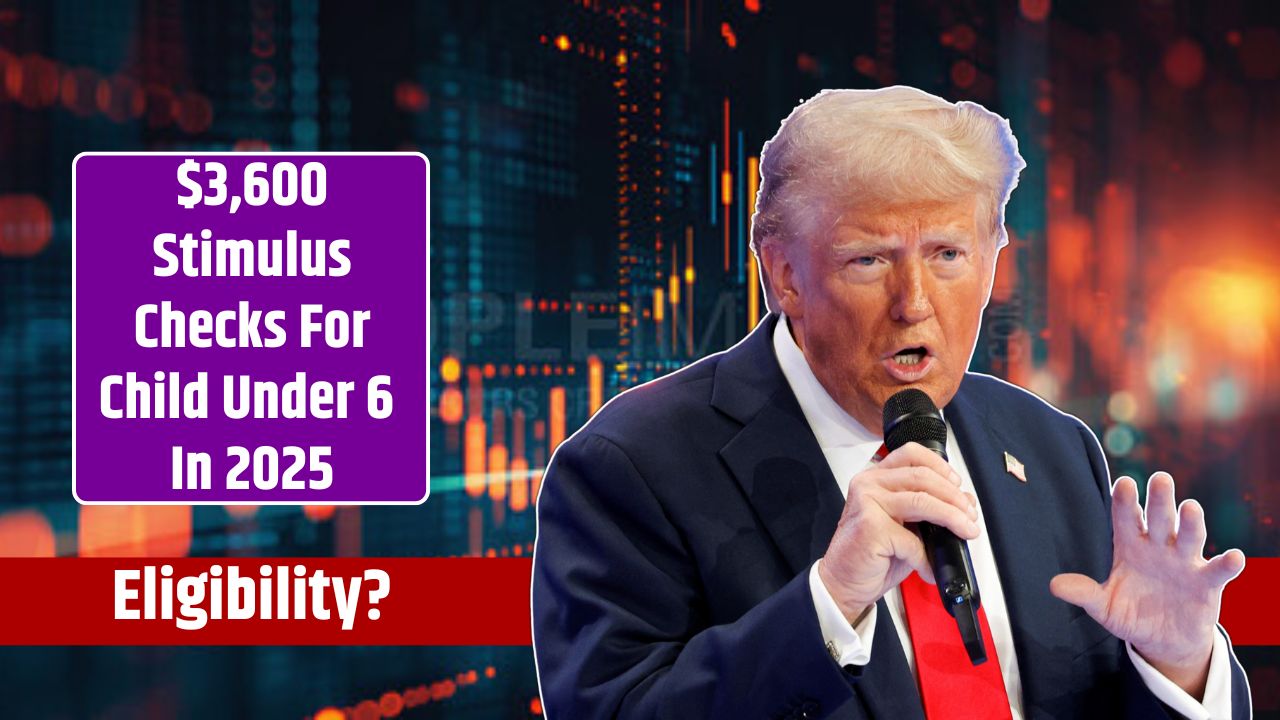Many Americans are wondering if they will receive $3,600 stimulus checks in 2025. While there are no confirmed stimulus payments of this amount, families can still benefit from the Child Tax Credit (CTC) and maximize their IRS tax refunds.
Staying updated on potential legislative changes and understanding the IRS refund process is essential for securing the financial relief you’re entitled to.
Current Status of the $3,600 Stimulus Check
| Topic | Details |
|---|---|
| Potential Stimulus | No confirmed $3,600 stimulus payments for 2025 |
| Child Tax Credit | Remains at $2,000 per child (not $3,600) |
| IRS Refund Process | IRS processes refunds based on tax filings |
| Possible Future Relief | Congress may propose expanded tax credits or targeted relief programs |
| Official Updates | Visit the IRS website for the latest tax information |
The $3,600 stimulus checks people are talking about likely stem from past expansions of the Child Tax Credit in 2021, which provided $3,600 per child under 6 and $3,000 for children 6-17.
However, this expired in 2021, and Congress has not approved a similar payment for 2025.
Financial Relief in 2025: What’s Available?
Although no $3,600 stimulus payments are currently planned, families can still benefit from the Child Tax Credit (CTC), which is set at $2,000 per child in 2025.
CTC Refundable Portion – Up to $1,700 per child may be refundable.
Income Limits – Phase-out begins at $200,000 for single filers and $400,000 for married couples.
How to Claim – File IRS Form 1040 and attach Schedule 8812.
Understanding the IRS Refund Process in 2025
Since stimulus checks are not guaranteed, maximizing your tax refund is the best way to ensure financial relief. Here’s how the IRS refund process works:
1. File Your Tax Return Accurately
Submit your tax return to determine if you owe money or qualify for a refund.
The IRS uses your income, deductions, and credits to calculate your refund.
2. Choose E-Filing for Faster Processing
Electronic filing (E-file) is faster than mailing a paper return.
Paper returns may take weeks longer to process.
3. Be Aware of IRS Processing Delays
IRS staffing shortages could cause refund delays in 2025.
High-volume tax seasons may slow processing times.
4. Track Your Refund Status
Use the IRS “Where’s My Refund?” tool on the IRS website.
Refund status updates are available 24 hours after e-filing or 4 weeks after mailing a paper return.
5. Choose Direct Deposit for Faster Refunds
Direct deposit is faster and more secure than a paper check.
Ensure your bank details are up-to-date with the IRS.
Practical Tips for Maximizing Your Refund
Since no stimulus checks are planned for 2025, tax credits and deductions will be key to maximizing your refund.
Claim All Available Tax Credits – Include CTC, Earned Income Tax Credit (EITC), and education credits.
Review Deductions – Common deductions include childcare expenses, student loan interest, and medical expenses.
Avoid Filing Errors – Incorrect tax filings delay refunds. Double-check personal information and bank details.
Consider Professional Tax Help – A tax expert can help you maximize your refund and avoid mistakes.
Could Future Stimulus Payments Be Approved?
Although no $3,600 stimulus checks are currently planned, discussions in Congress and the White House continue regarding financial relief programs.
Possible Expansion of Child Tax Credit (CTC) – Some lawmakers are pushing to increase the CTC again.
State-Level Relief Programs – Some states offer stimulus-like payments or tax relief for residents.
Targeted Federal Assistance – Future relief could be targeted at low-income families, seniors, or individuals facing financial hardship.
How to Stay Updated on Possible Stimulus Payments
If you’re hoping for future stimulus checks, here’s how to stay prepared:
Monitor Government Announcements – Follow IRS updates and White House statements.
File Taxes Early – Even if no stimulus is confirmed, filing early ensures you’re in the system.
Keep Your Bank Info Updated – If payments are approved, having the correct direct deposit info prevents delays.
At this time, no new federal stimulus checks are planned for 2025. However, families can still maximize their tax refunds through existing tax credits and deductions.










